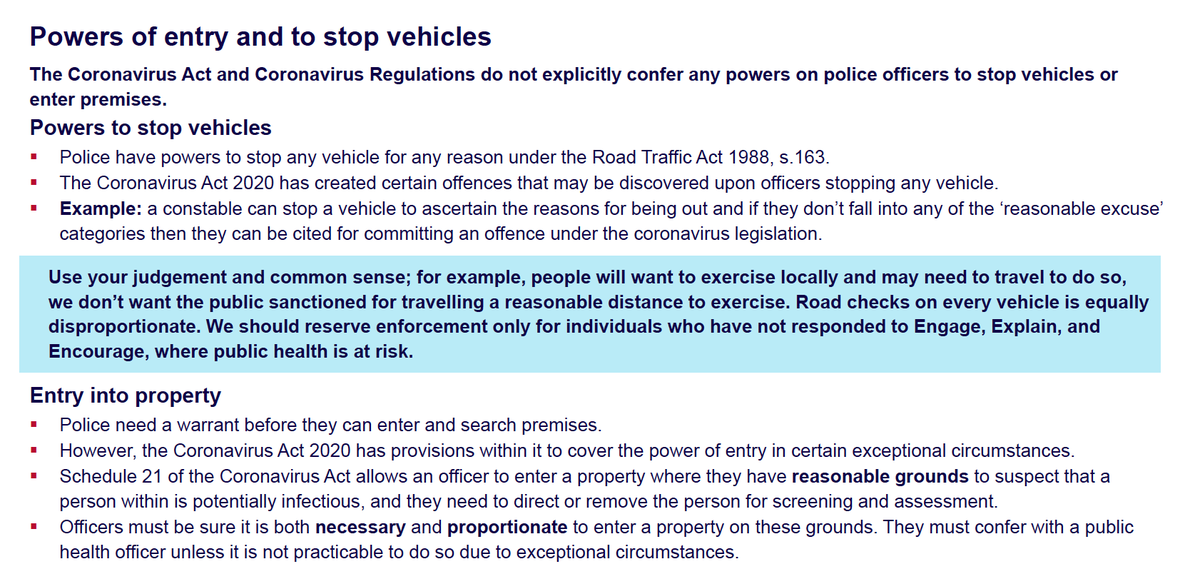speedy
TS Member
Start by following the advice yourself then!well I wanted people to stop being stupid and ignoring advice
Start by following the advice yourself then!well I wanted people to stop being stupid and ignoring advice
Buy one and then go back in with your face covered and nick the rest.Two weeks ago, local paper shop.
Paper surgical masks, three for a quid.
Local hardware shop, today.
Paper surgical masks.
Two pounds each.
.
Bandits in paper masks.
welcome to my brain@bluesonichd I sometimes wonder if there are two people accessing your account, it's like a conversation between Jekyll and Hyde.

and yet the Npcc say travel may be necessary to take exercise and they dont want to sanction people for doing so

https://www.college.police.uk/Docum...nse-to-Coronavirus-Government-Legislation.pdf
and yet the Npcc say travel may be necessary to take exercise and they dont want to sanction people for doing so
I would say for me a least a 6 mile radius would get me to some nice walks and stop me walking the streets, and away from people.Quick genuine question - if you want to drive to exercise, how far we talking?
I just find it inconsistent that you can drive for 6(2)a but not for 6(2)b. However this is just a curiosity on my part; I don't intend to do it and I don't wish us to go round in circles either.

It depends how much pent up cash there is vs. how many people and businesses have their income decimated come the end of this. The balance is largely going to be decided by the duration of the lockdown and the support given to individuals and organisations whilst it goes on.What are you guys' thoughts?
Hopefully there will be more of the former, because the government have announced many new measures in order to try and reduce the amount of the latter (e.g. suspension of business rates, government paying 80% of wages, benefits for self-employed etc.)It depends how much pent up cash there is vs. how many people and businesses have their income decimated come the end of this.
